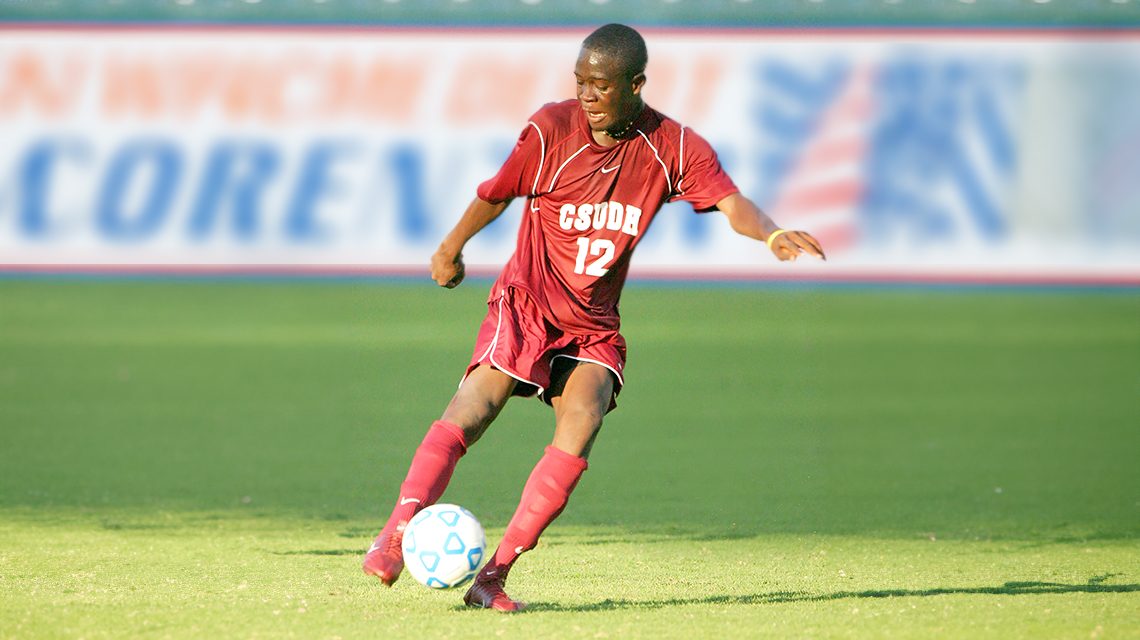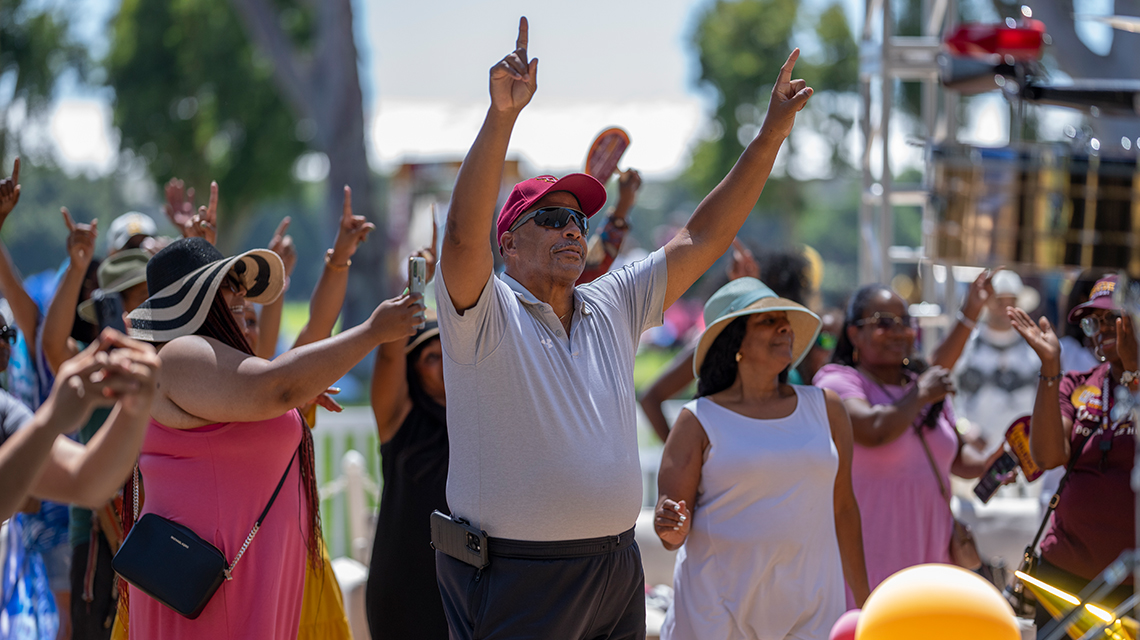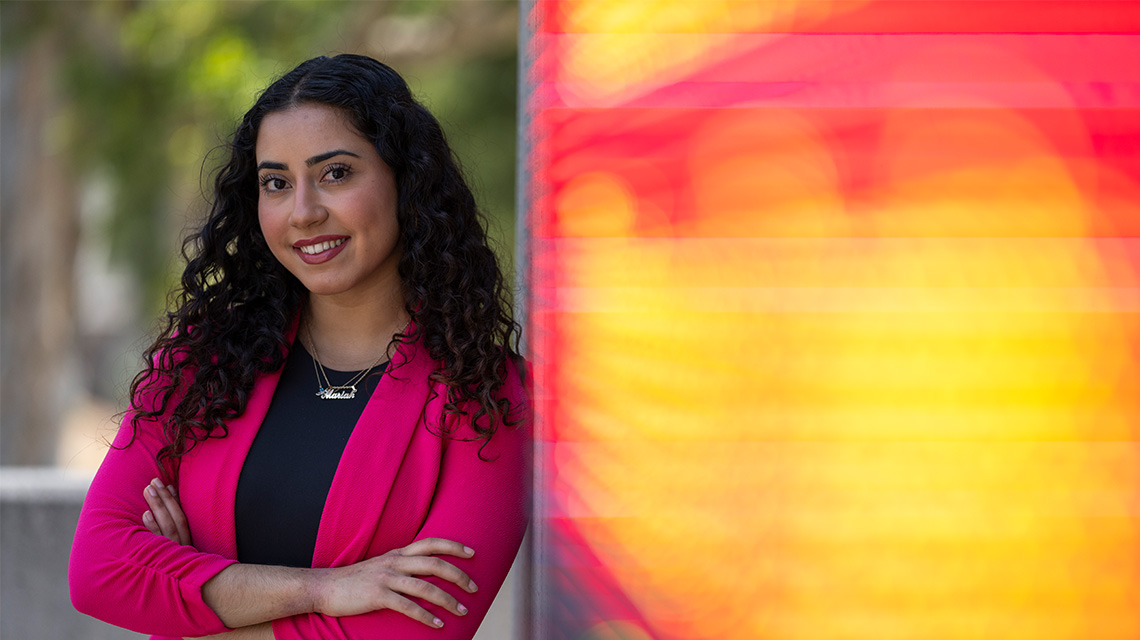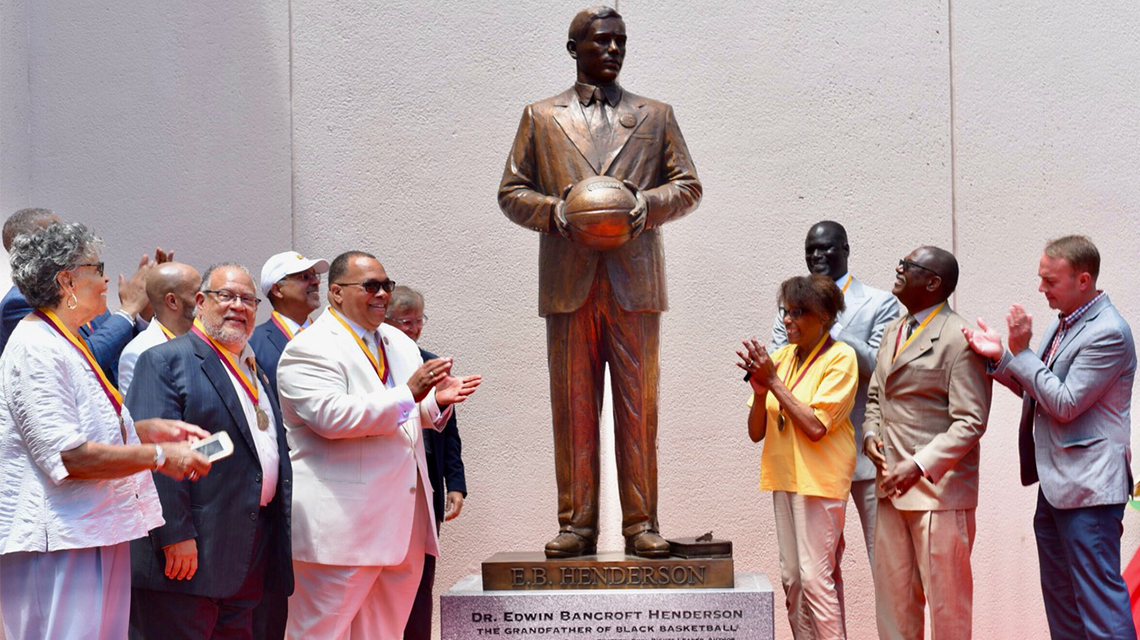Alumni
-
Archive

Toro Paralympian Seeks Gold in the City of Light
Some 4,400 athletes from 168 delegations joined the Parade of Nations in the Place de la Concorde on Aug. 28…
-
Archive

LA Times: How Kei Kamara Escaped Sierra Leone to Star for LAFC
Kei Kamara as a student playing for CSUDH in 2004. Photo credit: Michael Foo Source: LA Times The explosion outside…
-
Alumni

Homecoming — The Encore Hits All the Right Notes as Alums Show Their Toro Pride
President Thomas A. Parham dances with CSUDH alumni at Homecoming 2024. The sounds of live music and the scents of…
-
Campus News

No Time To Waste: Toro Gets Her Psychology Degree at Just 19
CSUDH graduate Mariah Sarabia. From a young age, Mariah Sarabia understood that education was a vital lifeline to the future…
